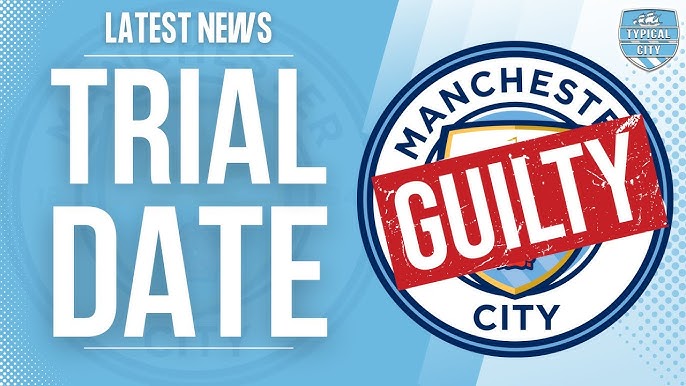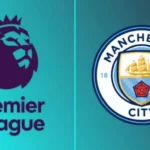The Premier League Football Association has officially announced Manchester City’s 115 charges

The football world continues to await one of the most significant legal decisions in Premier League history as Manchester City faces extensive charges from England’s top-flight governing body. What began as rumors and speculation has evolved into a complex legal battle that could reshape the landscape of English football and set unprecedented precedents for financial regulation in the sport.
The Foundation of the Case
In February 2023, the Premier League formally charged Manchester City with more than 100 alleged breaches of the league’s financial rules, covering a period from 2009 through the 2022-23 season. While initially reported as 115 charges, it is now believed that the actual number of alleged breaches is closer to 130.
The charges represent one of the most comprehensive investigations into a football club’s financial practices in Premier League history. The allegations span over a decade and encompass various aspects of City’s financial operations, from player transactions to sponsorship arrangements and cooperation with regulatory authorities.
The Detailed Breakdown of Charges
The charges against Manchester City can be categorized into several distinct areas of alleged misconduct:
Financial Information Accuracy
The most substantial portion of the charges relates to Manchester City’s alleged failure to provide accurate financial information to the Premier League. These allegations cover each season from 2009-10 through 2017-18, representing systematic concerns about the club’s financial reporting practices over nearly a decade.
Player and Manager Payment Irregularities
A significant number of charges focus on alleged misreporting of payments to players and managers. These accusations suggest that City may have disguised additional compensation through various mechanisms, potentially giving them an unfair competitive advantage in the transfer market and player retention.
UEFA Financial Fair Play Violations
The charges also include alleged breaches of UEFA’s Financial Fair Play regulations over five seasons. This aspect of the case connects to City’s previous UEFA sanctions, where they received a two-year European competition ban that was later overturned by the Court of Arbitration for Sport.
Cooperation Failures
Perhaps most damaging from a regulatory perspective are the charges related to Manchester City’s alleged failure to cooperate with the Premier League’s investigation between 2018 and 2023. Non-cooperation charges often carry severe penalties in sports governance, as they undermine the regulatory framework’s effectiveness.
The Evidence and Its Origins
The core allegations suggest that Manchester City concealed payments through third parties by disguising them as sponsorship revenue. Much of the evidence that sparked these charges originated from documents leaked to German publication Der Spiegel as part of their “Football Leaks” investigation.
Manchester City has consistently denied all allegations and has argued that much of the evidence was obtained unlawfully. This legal challenge to the evidence’s admissibility has been a central part of City’s defense strategy throughout the proceedings.
The club’s position has been that the charges are baseless and that they have operated within all applicable regulations. They have also pointed to their successful appeal against UEFA sanctions as evidence of their compliance with financial regulations.
The Hearing Process
The formal hearing began on September 16, 2024, at the International Dispute Resolution Centre near St Paul’s Cathedral in London, concluding 12 weeks later on December 6, 2024. This extended timeline reflects the complexity and volume of evidence that needed to be examined.
The hearing was conducted by an independent commission, following standard procedures for such regulatory disputes. Both Manchester City and the Premier League presented their cases through legal representatives, with extensive documentation and witness testimony forming the basis of the proceedings.
The hearing’s conclusion in December 2024 marked the end of the evidence presentation phase, but the decision-making process continues as the independent panel deliberates on the extensive material presented during the 12-week session.
Timeline Expectations and Delays
Initially, a decision was expected in the spring of 2025, most likely around March. However, recent reports suggest significant delays in the timeline. The verdict now looks unlikely before the 2025/26 season gets underway on August 16, 2025.
Some sources now suggest the verdict may not come until “summer at the earliest,” indicating that the complexity of the case and the volume of evidence require extensive deliberation time. This delay, while frustrating for those seeking resolution, is not unexpected given the unprecedented nature of the charges and their potential implications.
Potential Consequences and Penalties
If Manchester City is found guilty of the charges, they could face severe penalties that would represent some of the harshest sanctions ever imposed in English football:
Points Deductions
Significant points deductions could affect City’s league position both for the current season and potentially future seasons. The severity would likely depend on the number of charges upheld and their perceived impact on competitive integrity.
Financial Penalties
Substantial fines could be imposed, though given Manchester City’s financial resources, monetary penalties alone might not be considered sufficient deterrent.
Transfer Restrictions
The club could face limitations on player recruitment, similar to sanctions imposed on other clubs for financial violations.
Relegation
In the most extreme scenario, Manchester City could face relegation to a lower division, though this would represent an unprecedented punishment in Premier League history.
Title Stripping
There has been speculation about the possibility of Manchester City being stripped of titles won during the period of alleged violations, though this would create complex precedents and logistical challenges.
Impact on Other Clubs
The case has broader implications for Premier League clubs beyond Manchester City. Other clubs are reportedly contributing financially to support the Premier League’s legal costs in pursuing the case, with the understanding that these contributions are “non-recoverable” regardless of the outcome.
This financial involvement reflects the broader concern among Premier League clubs about maintaining competitive integrity and ensuring that financial regulations are properly enforced. The case serves as a test of the league’s ability to regulate its members effectively.
For clubs like Manchester United, who finished second to City in multiple seasons during the alleged violation period, there could be implications if titles are stripped or redistributed. However, the practical and legal complexities involved make such outcomes highly uncertain.
Precedent and Broader Context
The Manchester City case represents a watershed moment for financial regulation in English football. The Premier League’s willingness to pursue such extensive charges against one of its most successful clubs demonstrates a commitment to regulatory enforcement that could set important precedents for future cases.
The case also reflects broader tensions in modern football between competitive success and financial regulation. As clubs seek every possible advantage in an increasingly competitive environment, the boundaries of what constitutes fair play continue to be tested and refined.
Comparison with Other Cases
The Manchester City case can be viewed in the context of other recent Premier League financial violations. Everton’s case, which resulted in points deductions that were later reduced on appeal, provides some indication of how the Premier League approaches financial violations, though the scale and scope of the City charges are far more extensive.
The precedents set by UEFA’s Financial Fair Play enforcement, including City’s successful appeal to the Court of Arbitration for Sport, also inform expectations about potential outcomes and appeal processes.
Media and Public Interest
The case has generated unprecedented media attention and public interest, reflecting both Manchester City’s high profile and the potential implications for competitive integrity in English football. The lengthy timeline and complex legal proceedings have sustained public attention over an extended period.
Social media speculation and fan debates have created additional pressure for resolution, though the legal process must proceed according to its own timeline regardless of external pressures.
Technical and Legal Complexities
The case involves complex accounting practices, financial regulations, and legal precedents that make simple predictions about outcomes difficult. The intersection of sports governance, commer















